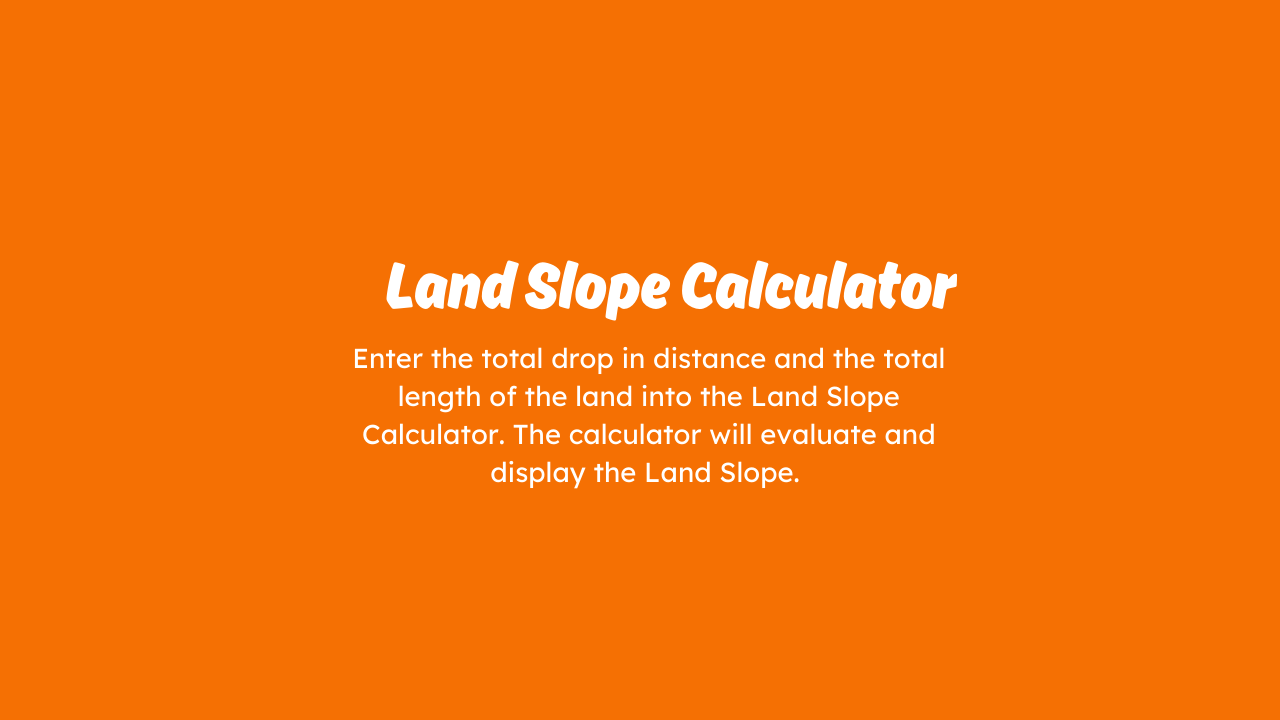Understanding land slopes is essential for construction, landscaping, and drainage planning. A Land Slope Calculator helps determine the incline of a surface by calculating the slope ratio, slope percentage, and slope angle based on the vertical rise and horizontal run.
This article provides a step-by-step guide on how to calculate the land slope, complete with formulas, LaTeX code, and a practical example.
What Is Land Slope?
The land slope represents the steepness of a surface, which is crucial for water drainage, road construction, and agricultural planning. It is typically expressed in three forms:
- Slope Ratio (e.g., 1:20)
- Slope Percentage (e.g., 5%)
- Slope Angle in degrees (e.g., 2.86°)
Each of these values provides insight into how steep or gradual a surface is.
Formula
1. Formula for Slope Ratio
The slope ratio is the ratio of the vertical rise to the horizontal run:
Slope Ratio=Run (Total Length of the Land)Rise (Vertical Change)
It is often expressed as 1:X, where X is the inverse of the ratio.
2. Formula for Slope Percentage
The slope percentage expresses the slope as a percentage by multiplying the ratio by 100:
Slope Percentage=(Run (Total Length of the Land)Rise (Vertical Change))×100
This value is commonly used in road and land grading projects.
3. Formula for Slope Angle (Degrees)
To determine the slope angle in degrees, we use the tangent function:
Slope Angle=tan−1(Run (Total Length of the Land)Rise (Vertical Change))
This gives the actual angle of inclination.
Example Calculation
Let’s apply these formulas in a practical example:
Given Data:
- Rise (Vertical Change) = 3 meters
- Run (Total Length of Land) = 60 meters
Step 1: Calculate Slope Ratio
Slope Ratio=603=201
Step 2: Calculate Slope Percentage
Slope Percentage=(603)×100=5%
Step 3: Calculate Slope Angle
Slope Angle=tan−1(603)
=tan−1(0.05)≈2.86∘
Conclusion
A Land Slope Calculator is a valuable tool for determining land gradients, ensuring proper drainage, and guiding construction projects. By using the formulas provided, users can accurately compute the slope ratio, percentage, and angle, aiding in effective land planning.

Check out 1 similar Land Slope Calculator :